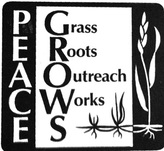Citizens of a Democracy must learn and select from many ways to get involved.
How would you end the following statement:
|
The violence that permeates our homes through the media makes me feel...
|
Answers could include:
|
The following article first appeared in The Alternatives to Violence Workbook in 1996; the contents of this analysis of media remain relevant today.
|
Does the media contribute in any way to the growth of violence in our society and, if so, how?
The answer seems to center around two other questions:
"...Undoubtedly far more human problems and conflicts are handled nonviolently or we would all be dead!"
|
| ||
Now two examples of GOOD media!
A newspaper article about nonviolence that went around the world:
Case Study: |
GANDHI'S FAMOUS “SALT MARCH”
|
|
The “Salt March” was one of the most famous nonviolent actions initiated by Gandhi. In defiance of British police, volunteers walked to the ocean to get their own salt, rather than buying it from the British colonists.
Here are excerpts from the New York Telegram’s report of May 22, 1930, on the demonstration: The scene "was astonishing and baffling to the Western mind accustomed to see violence met by violence, to expect a blow to be returned and a fight result. During the morning I saw hundreds of blows inflicted by the police, but saw not a single blow returned by the volunteers. So far as I could observe the volunteers implicitly obeyed Gandhi’s creed of nonviolence. |
In no case did I see a volunteer even raise an arm to deflect the blows. There were no outcries from the beaten Swarajists, only groans after they had submitted to their beating…Much of the time the stolid native Surat police seemed reluctant to strike…I saw many instances of the volunteers pleading with the police to join them…At other times…the beating would be done earnestly…Sometimes the scenes were so painful that I had to turn away momentarily.”
See The Power of Nonviolence (Gregg), pp. 24-26 This is a great example of how the media could be a good source of information and a great assistance to a nonviolent effort. There are times where the media has captured the minority of violent actions amongst a nonviolent resistance. In this case, the media properly reported the events and the brutality against the "volunteers". This gave sympathy to the resisters.
|
A pioneer of professional journalism, Edward R. Murrow:
Hear two excerpts from the 2005 docudrama, "Good Night, and Good Luck" about Edward R. Murrow's historic CBS weekly program, "See It Now." |
|
What are some responsibilities of citizens in a democracy like the United States?
The following article attempts to answer this question:
|
"...Have you heard the story of The One Hundredth Monkey? It is the title of a small book authored by Ken Keyes. The book tells of some research done with monkeys on islands near Japan. Apparently these monkeys liked sweet potatoes. The researchers buried some in the sands along the shore. Initially the monkeys dug them up and ate them, sand and all. Then the researchers showed just one monkey how to wash off the sand. That monkey showed others and the teaching spread as both the cleaning method and the improved taste were learned. Suddenly, according to the report, when the one hundredth monkey learned and began the washing process all of the monkeys on the island followed suit. The new approach even spread to other islands.
What this proposes is that, maybe, you will be that hundredth monkey in the process of changing our society and world. Everyone, as we said, can do something. One person alone can do little to reduce social violence. However, when enough individual efforts join, things will change. The challenge is to alter our culture from a violent often dangerous, competitive one, to a more caring one. A culture is made up of the attitudes, values, behaviors, etc. of the individuals who make up that culture. As the changed total patterns grow from person to person, our goals will be achieved. Violence can be reduced or even eliminated..." |
"Working with the Democratic System"
| ||
The first ten amendments to the Constitution of the United States guaranteed civil liberties against infringement by the federal government. The Bill of Rights became part of the Constitution on December 15, 1791. Extending these rights to all of our citizens is ongoing.
Amendments to the American Constitution
|
Amendment 1
Congress shall make no law respecting an establishment of religion, or prohibiting the free exercise thereof; or abridging the freedom of speech, or of the press; or the right of the people peaceably to assemble, and to petition the Government for a redress of grievances. Amendment 2 A well-regulated Militia, being necessary to the security of a free State, the right of the people to keep and bear Arms, shall not be infringed. Amendment 3 No Soldier shall, in time of peace be quartered in any house, without the consent of the owner, nor in time of War, but in a manner to be prescribed by law. Amendment 4 The right of the people to be secure in their persons, houses, papers, and effects, against unreasonable searches and seizures, shall not be violated, and no warrants shall issue, but upon probable cause supported by oath or affirmation, and particularly describing the place to be searched, and the persons or things to be seized. Amendment 5 No person shall be held to answer for a capital, or other infamous crime, unless on a presentment or indictment of a Grand jury, except in cases arising in the land or naval forces, or in the Militia, when in actual service in time of War or public danger; nor shall any person be subject for the same offence to be twice put in jeopardy of life or limb; nor shall be compelled in any criminal case to be a witness against himself, nor be deprived of life, liberty, or property, Without due process of law; nor shall private property be taken for public use, Without just compensation. |
Amendment 6
In all criminal prosecutions, the accused shall enjoy the right to a speedy and public trial, by an impartial jury of the State and district wherein the crime shall have been committed, which district shall have been previously ascertained by law, and to be informed of the nature and cause of the accusation; to be confronted with the witnesses against him; to have compulsory process for obtaining witnesses in his favor, and to have the Assistance of Counsel for his defense. Amendment 7 In suits at common law, where the value in controversy shall exceed twenty dollars, the right of trial by jury shall be preserved, and no fact tried by a jury, shall be otherwise re-examined in any Court of the United States, than according to the rules of the common law. Amendment 8 Excessive bail shall not be required, nor excessive fines imposed, nor cruel and unusual punishments inflicted. Amendment 9 The enumeration in the Constitution, of certain rights, shall not be construed to deny or disparage others retained by the people. Amendment 10 The powers not delegated to the United States by the Constitution, nor prohibited by it to the States, are reserved to the States respectively, or to the people. |
A woman taking her citizenship most seriously through the following case study:
Case Study: |
WIDOW COMBS VS. CAPERTON COAL
|
Widow Combs told her sons to go on with the sheriff, but she sat till they carried her away to jail. Three times in all Widow Combs went to jail. She even ate Thanksgiving dinner there, sent to her by the people of Clear Creek. Newspapers, radio and TV all reported her story, and before long, the whole state knew about Widow Combs. There was such an uproar, the Governor took a stand. He issued new and proposed new laws on strip mining. The county judge who sent Mrs. Combs to jail acted, too. He ordered the news rules enforced immediately. The Caperton Coal Company was defeated. Widow Combs’ battle against strip mining wasn’t the first one or the last, but it was certainly one of the best. See Appalachian People’s History Book (Crowell), p. 98. This case was an example of how our media and our constitutional rights can help us be successful when acting against injustices. Thanks to the media reporting on Widow Combs, all learned of her story and backed her. The court system was able to back Widow Combs and change laws on strip mining due to her rights infringed upon. |
Let's listen to an interview that examines: How will any crisis change us?
"Public Theologian and Author Jim Wallace"
Review and Reflect
Major Point to Remember:
Citizens of a Democracy must learn and select from the many ways to get involved.
To Reflect: Optional Activities
Materials located on "Extra" page for applications #1 & #2
#1: Analyze at least two Case Studies: 17A, 17B, 14C, 14D
#2: Movie Assignment: View "Battle in Seattle" and and answer the corresponding questions
#3: Application:
Your Vote Counts More:
I think letters have an effect on members of Congress. Everybody’s vote counts in America, but those who sit down and write letters make their votes count more times…Nothing is more effective than a letter that reflects both an understanding of the question involved and a sincere expression of a personal viewpoint based on that understanding. –John F. Kennedy, August 1963, to editors of national women’s magazines.
We hope you write or email your representative, senator, or President and tell us about any response.
#2: Movie Assignment: View "Battle in Seattle" and and answer the corresponding questions
#3: Application:
Your Vote Counts More:
I think letters have an effect on members of Congress. Everybody’s vote counts in America, but those who sit down and write letters make their votes count more times…Nothing is more effective than a letter that reflects both an understanding of the question involved and a sincere expression of a personal viewpoint based on that understanding. –John F. Kennedy, August 1963, to editors of national women’s magazines.
We hope you write or email your representative, senator, or President and tell us about any response.
| How to Write and Email Members of Congress and the President |

